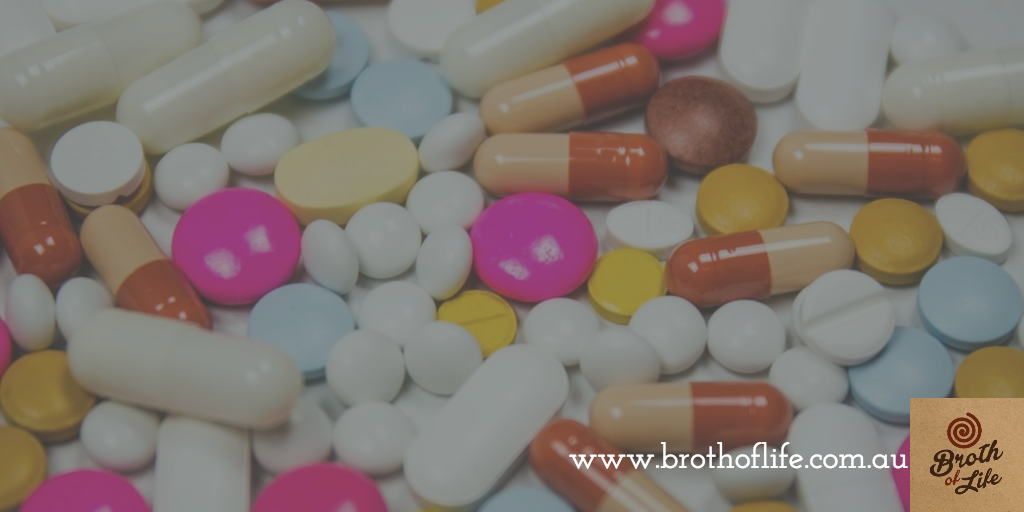Offer
Provide additional details about the offer you're running.

So, you’re feeling throaty, chesty, raspy, think you might have an ear infection – or maybe you’re just feeling ‘bleh’ and want to figure out why. Among the many things that send us to the Doctor are viral infections. Most of us, as frustrating as they are, would hope for a viral diagnosis over a bacterial one, as they usually only require rest and there is no need for prescribed medications. Although we try to avoid antibiotic use, it must be said that in circumstances where ones’ health is at serious risk and there is NO other option to aid recovery, they really can work a medicinal kind of magic by killing off infection.
The issue here is that while killing off a bacterial infection, antibiotics can cause several side effects such as diarrhea and can also detrimentally affect the body’s levels of beneficial bacteria [1].
The way antibiotics work is they focus on the difference in structure of the host’s (that’s you) cell and the bacterial cell. Depending on what classification the antibiotics fall under, they can either stop bacterial cells and microscopic organisms, like fungi, from forming or multiplying, allowing the immune system to do the rest of the work, or they can destroy them entirely. Either way, in the process of avoiding or eliminating infection, antibiotics can also kill off the beneficial bacteria within our bodies. This beneficial bacterium allows our bodies to maintain gut barrier integrity and supports our immune systems. Without it, our bodies are inevitably vulnerable to other forms of infection.
So, which is the lesser of the two evils? Antibiotics or bacterial infections? The answer to this can depend on the severity of the illness. While antibiotics have their after effects, such as causing an imbalance of good and bad bacteria, producing toxins and often resulting in inflammation or conditions like leaky gut syndrome, they are still a wonder in the world of western medicine. They have enabled us to clear up infections that in centuries passed, would have easily taken people’s lives. When they are necessary, they are profoundly effective, so what we need to make sure of, is that that firstly we aren’t taking them for every minor ailment and that secondly, after taking a course of antibiotics we do everything we can to help our bodies rebuild the good microbes that the antibiotics have likely eliminated.
After all, swapping one problem for another is not exactly efficient, is it?
If you’ve found yourself in a situation where you have needed to take a course of antibiotics and now need to rebuild your immune system, don’t stress, there are ways to recover.
To help restore the balance of beneficial bacteria in the gut;
Get yourself a good quality naturopath or holistic doctor recommended probiotic. The ‘good’ bacteria provided by a probiotic can help improve a number of digestive and immune functions.
Incorporate more fermented foods in your diet. These help to keep you intestinal tract strong.
Include gelatine, glutamine and mineral rich foods, such as bone broth, in your diet. Studies have demonstrated that there is a link between glutamine and the repair of the lining of the gut [2]. Bone broth is the perfect source for each one of these. It is tasty, easy to consume and a quick and efficient way for the body to absorb it’s required nutrients.
Do these things and you will be well on your way to recovery. It’s imperative that after a course of antibiotics you take care of and listen to your body. You may have recovered from the ailment that had you diagnosed with antibiotics to begin with, but to stay truly well, looking after your gut is paramount. Your gut is the unsuspecting, modest powerhouse that can make or break your body. It is your ‘second brain.’ Respect it and you will be on your way to a quicker, more complete recovery and to an overall healthier you!
*Broth of life does not provide medical advice and recommends that you consult your physician for medical guidance or instruction.
*Individual results may vary.
REFERENCES:
[1] J Antimicrob Chemother. 1985 Mar;15(3):319-26.
The influence of single dose intravenous antibiotics on faecal flora and emergence of Clostridium difficile.
Ambrose NS, Johnson M, Burdon DW, Keighley MR.
https://www.ncbi.nlm.nih.gov/pubmed/3846592
[2] Dig Dis. 2009;27(4):450-4. doi: 10.1159/000233283. Epub 2009 Nov 4.
Therapeutic options to modulate barrier defects in inflammatory bowel disease.
Hering NA1, Schulzke JD.
https://www.ncbi.nlm.nih.gov/pubmed/19897959